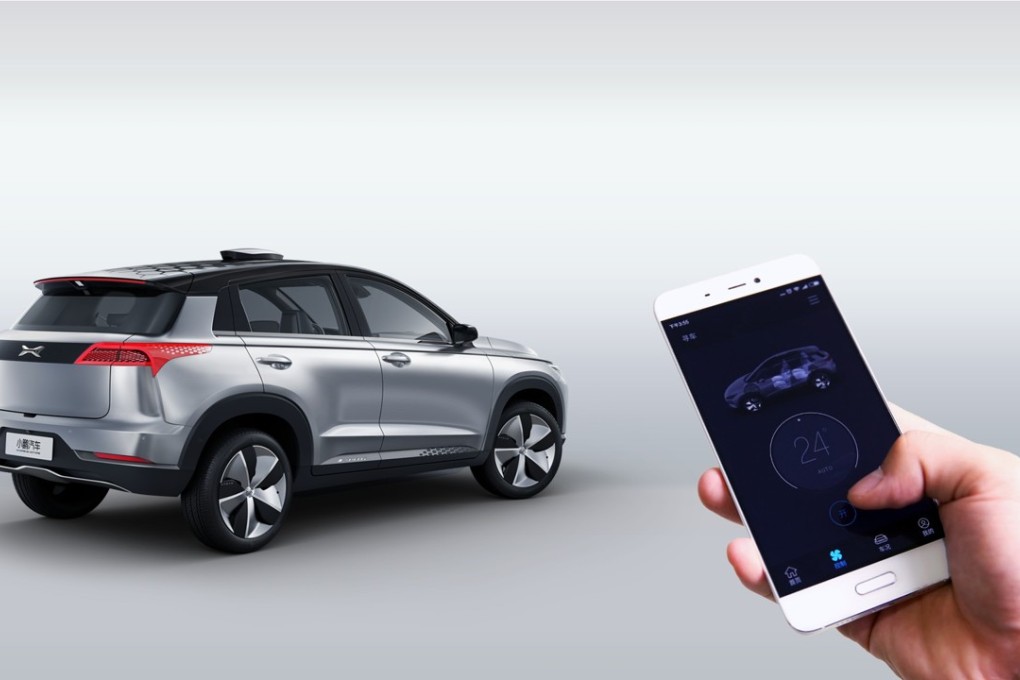Alibaba-backed EV start-up bids to challenge Tesla with launch of first production car at CES
Xiaopeng Motors, one of several Chinese electric-car start-ups with ambitions to rival Tesla, will put itself under the scrutiny of the world’s media when its first production model is rolled out in Las Vegas next month.

Xiaopeng Motors, the electric car start-up backed by Alibaba Group Holding, is poised to take a big step forward in its goal to challenge Tesla, when its first production electric sport utility vehicle is unveiled at the annual CES trade show in Las Vegas next month.
The high-profile launch in the world’s biggest consumer electronics show would mark a major milestone for the Guangzhou-based company known as Xpeng, as its latest 5 billion yuan (US$765 million) financing round is expected to be completed by the Lunar New Year holiday late next month, according to co-founder and chairman He Xiaopeng.
“Design, mileage range, quality and autonomous driving experience of the 2.0 version will be a big step-up [from the initial model]. It will surpass those [EVs] in the market priced at above 400,000 yuan,” said He in a letter to employees on Thursday.
Xpeng’s compact electric car, which was introduced in China in October this year, offers an array of intelligent and internet-based functions, including auto parking, low-speed cruising, voice interaction and remote control. It can accelerate from zero to 100 kilometres per hour in 5.8 seconds, and has a battery range of 300km.
The company’s initial batch of 1,000 production cars had a limited release to employees and selected customers in October.